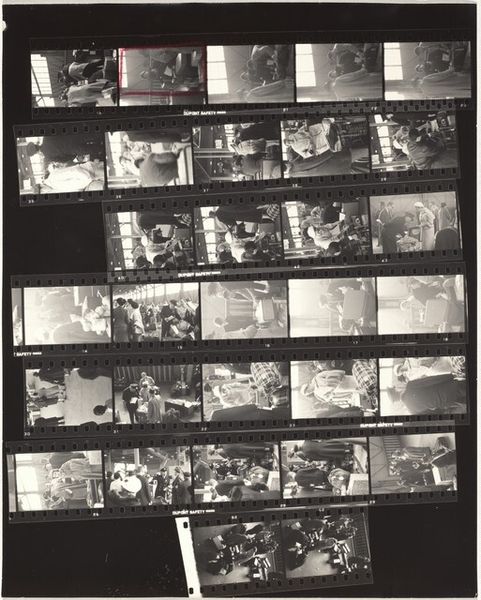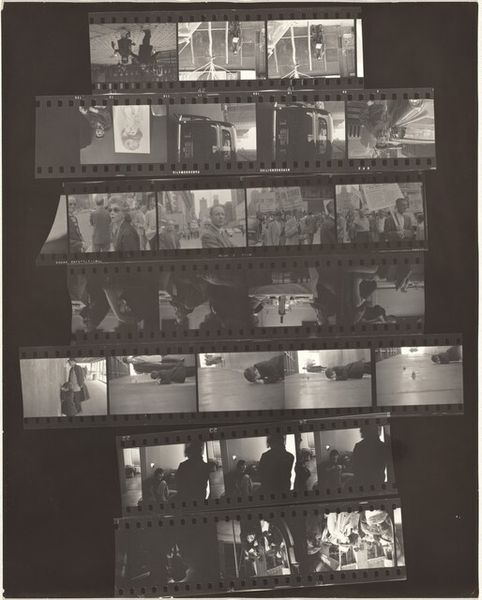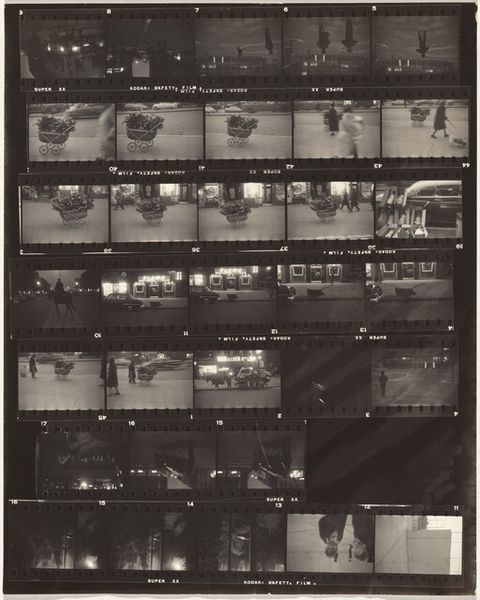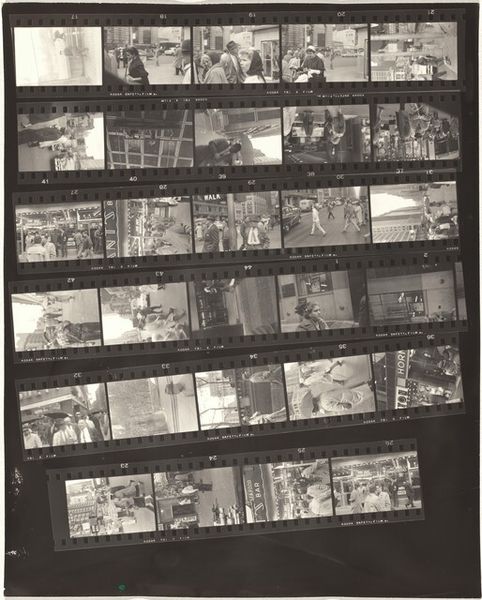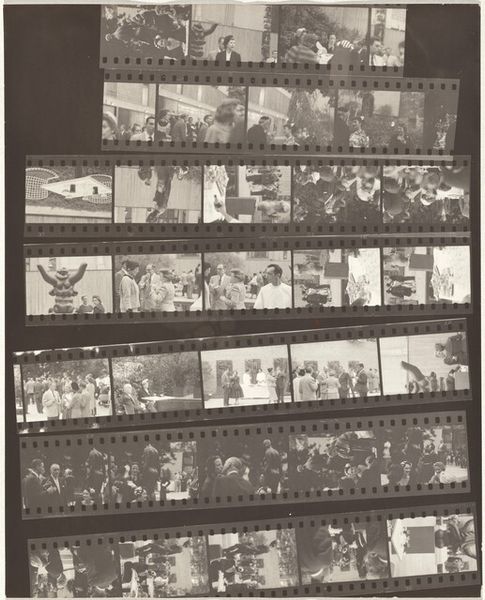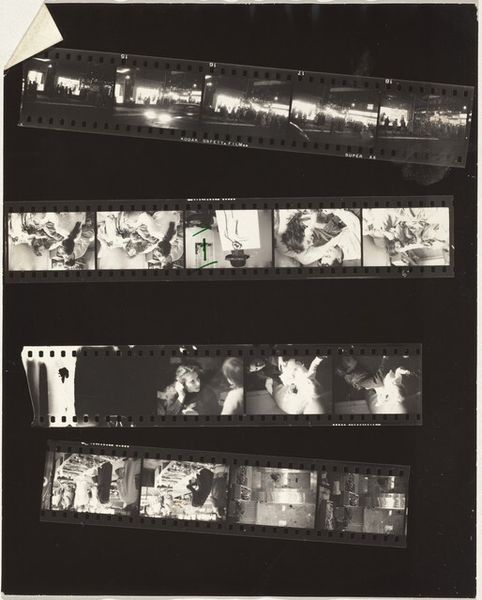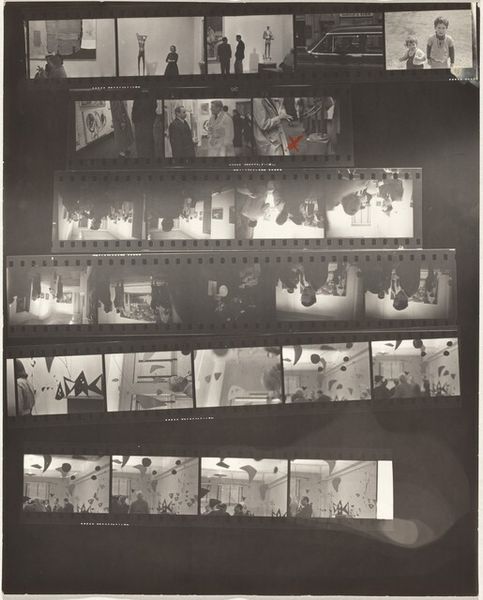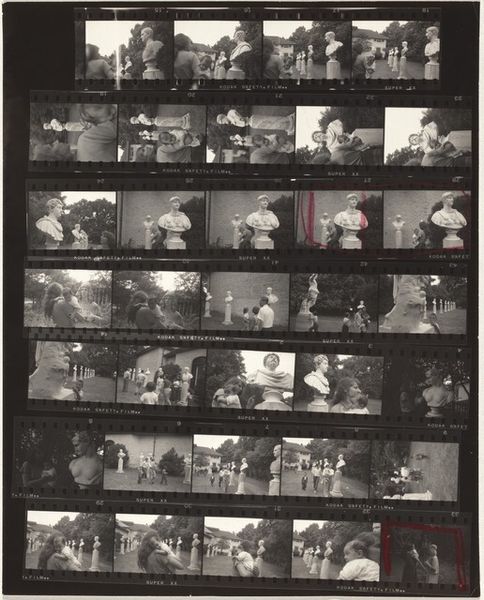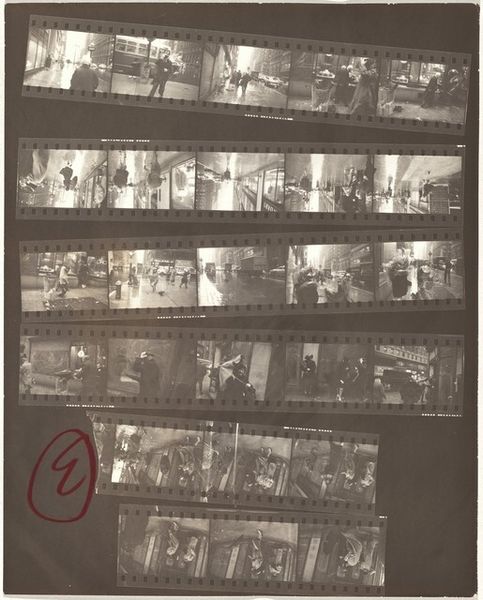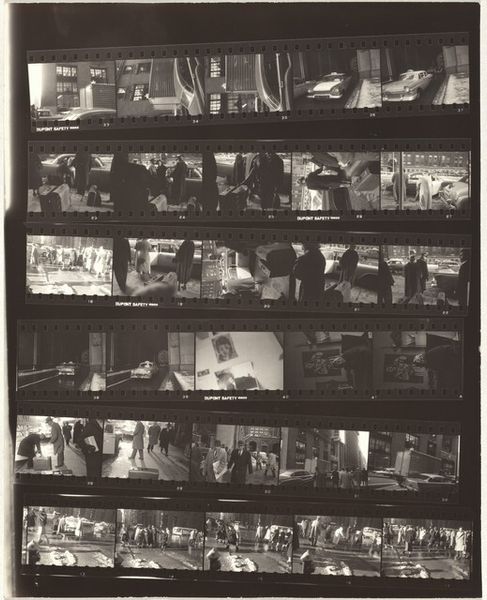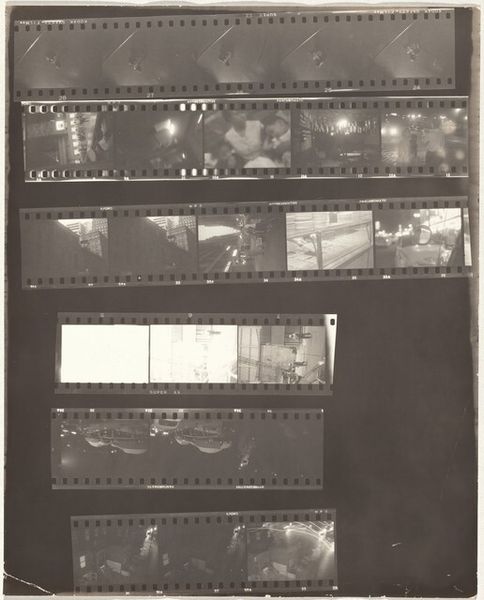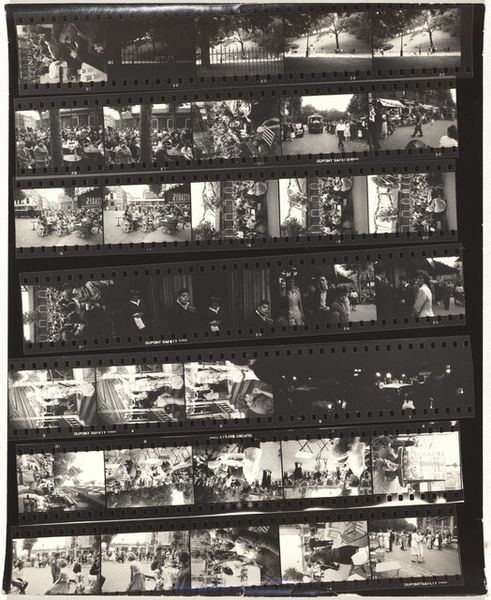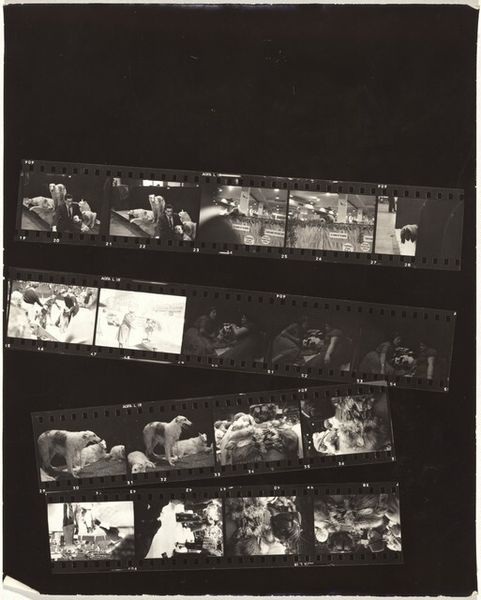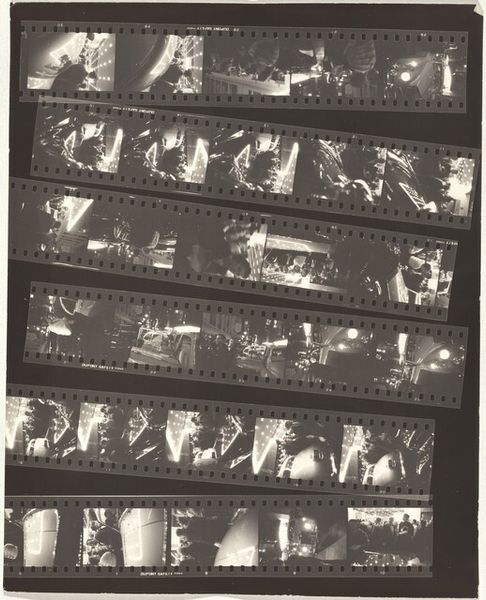
photography, gelatin-silver-print
#
film photography
#
archive photography
#
street-photography
#
photography
#
photojournalism
#
gelatin-silver-print
#
monochrome photography
#
pop-art
#
monochrome
Dimensions: overall: 25.3 x 20.2 cm (9 15/16 x 7 15/16 in.)
Copyright: National Gallery of Art: CC0 1.0
Editor: This is Robert Frank’s "Guggenheim 160—Eisenhower Campaign, New York City," taken in 1956, a gelatin silver print. It’s a contact sheet, showing many frames from a roll of film. I’m struck by how raw and unpolished it feels. What do you see in this work? Curator: Well, I see Frank using the visual language of the street, not just to document the Eisenhower campaign, but to critique the spectacle of political imagery itself. Think about the period – post-war optimism, the rise of television and image-based politics. Frank disrupts this manufactured reality. Editor: How so? Curator: Look at the frames. There isn’t a clear, heroic portrait of Eisenhower. Instead, we get glimpses – fragments of signs, faces in a crowd. It highlights how political messaging saturates public spaces. Were these carefully crafted moments of propaganda? Editor: They don’t seem very flattering, though! Curator: Exactly! And that’s Frank’s point. He isn’t simply documenting; he is framing how political imagery functions. Consider the Guggenheim as the subject. Doesn’t it act as a filter itself? The space as much a protagonist as the campaign? Editor: So it's less about Eisenhower and more about the mechanics of his image? Curator: Precisely. And by leaving it as a contact sheet, Frank is showing us the artistic process, his editing decisions, and the constructed nature of what we consume as 'truth'. Editor: That’s fascinating, I always just saw them as behind-the-scenes pictures. I never thought about their role in shaping political perceptions back then. Curator: It forces us to rethink what's happening in that historical moment and to re-evaluate art's role in visually challenging dominant narratives.
Comments
No comments
Be the first to comment and join the conversation on the ultimate creative platform.
